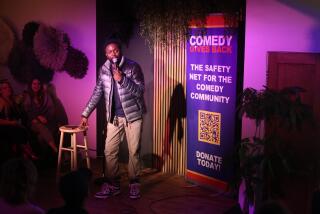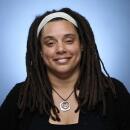From ‘Luke Cage’ to late night: Diversity is a hot topic at Television Critics press tour
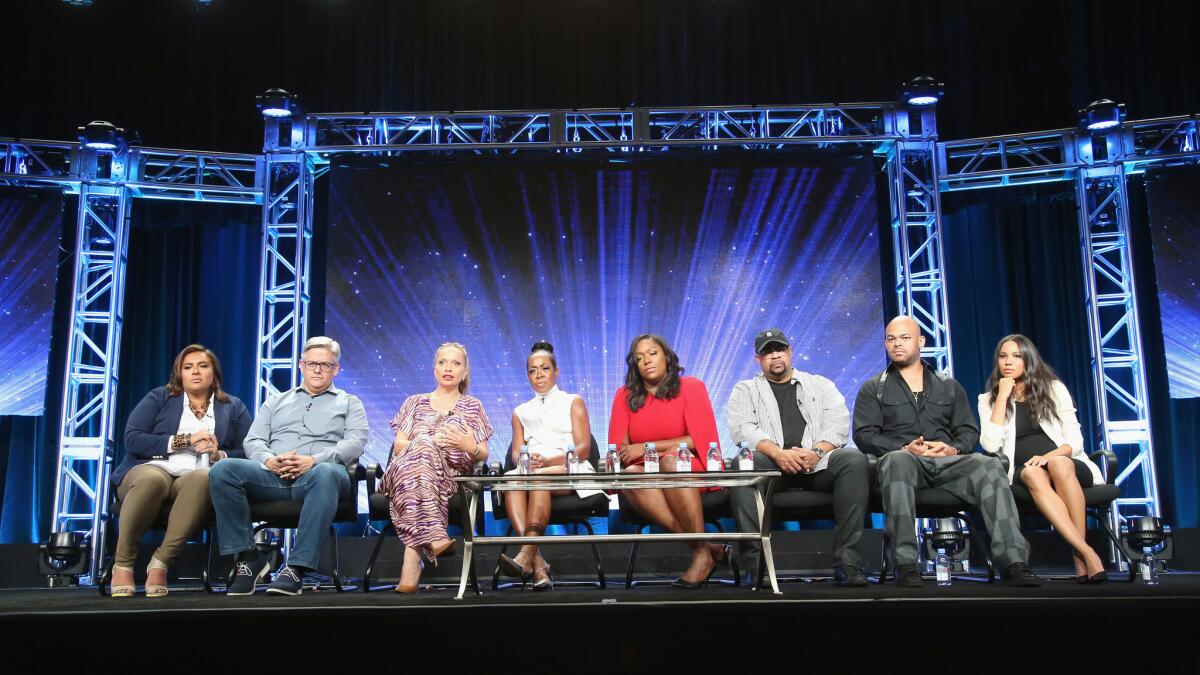
- Share via
From superhuman superheroes to super-funny black female comedies; from the whiteness of the late-night comedy landscape to the importance of representation onscreen and behind the scenes, diversity was a hot topic in the first few days of the Television Critics Assn. summer press tour.
As the broadcast and cable networks and streaming services gathered in Beverly Hills, network executives fielded questions, producers discussed the make-up of writers’ rooms, and actors talked about both business and personal concerns when it came to the characters they portray onscreen. The discussion included progress that has been made as well as steps that still need to be taken.
The issue was so prevalent that during Monday’s cable portion of the tour, several networks banded together to tackle it, including representatives from Starz, WGN America, TV One and El Rey Network.
Part of the problem in achieving noticeable shifts in representation, according to Victoria Mahoney, a director on the Starz comedy “Survivor’s Remorse,” is the inability of the d-word to capture the essence of what’s at stake
See the most-read stories in Entertainment this hour »
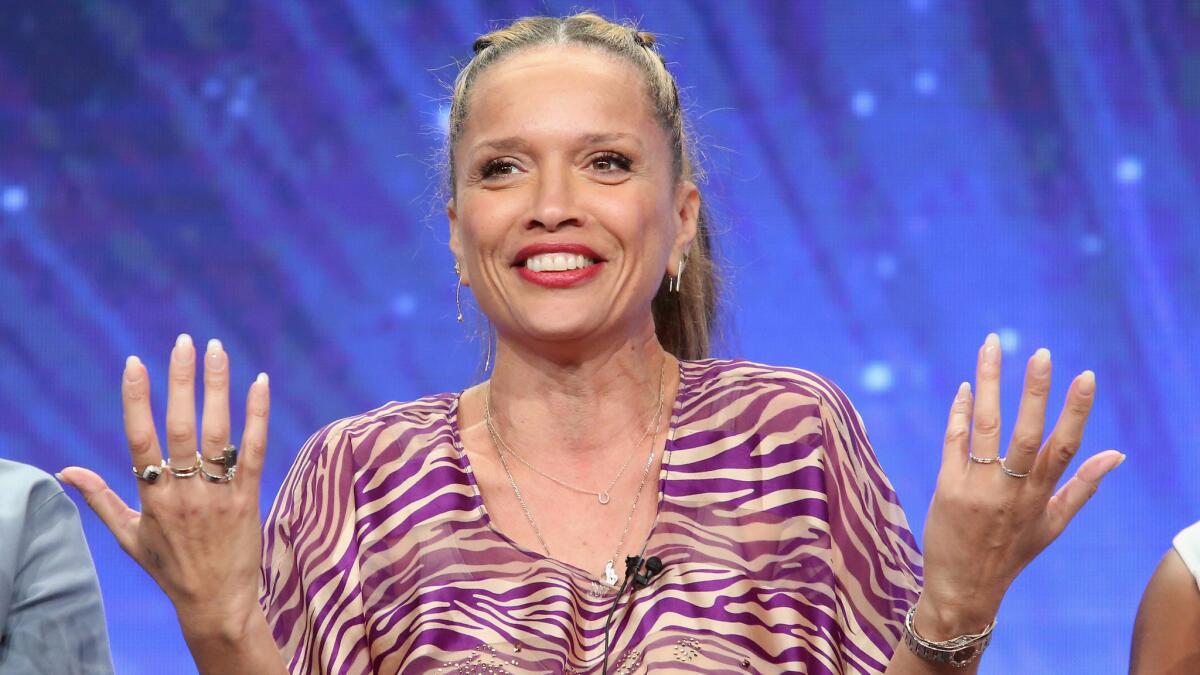
“I am not a fan of the word ‘diversity,’” Mahoney said. “What’s diverse about inclusivity?” Mahoney noted that it should be about letting storytelling be human, not exclusionary. “We’ve been exclusive [for so long]. How about we not be exclusive anymore and just open it up?”
Russ Parr, who is a director and writer on TV One’s upcoming boxing film, “Ringside,” stressed that inclusion doesn’t mean being pigeonholed on race-centric topics.
“It wasn’t always popular to humanize African Americans and, therefore, it wasn’t profitable,” he said. “We’re able to tell so many different stories that weren’t accepted years ago ... like maybe two years ago. The big thing to understand is we have stories too. We love too. We get angry too. It’s not about beating you over the head with racial topics. And that we’re going to take a chance even if we have to lose money.”
Asked what stories they’d like to see come to fruition, Carlos Coto, the showrunner and executive producer of El Rey Network’s supernatural series “From Dusk Till Dawn,” kept it simple: “I’m dying to see a Latino family show that’s not about criminals. … I want to make a Latino show without the word ‘cartel’ in it.”
The topic popped up several times during HBO’s portion of the presentation over the weekend as well.
New programming chief Casey Bloys was asked if there were plans for a female-led show given the homogeneity of its comedy/talk line-up of John Oliver, Bill Maher, Bill Simmons and, soon, Jon Stewart.
“I wouldn’t say there is a plan, but a desire,” said Bloys. “I think it’s a valid point.”
There have been some talks with talent, he said, and he hoped those would continue. “I think it would be nice to have somebody other than white men in late night.”
Bloys also noted that he recently picked up a pilot, “Mogadishu, Minnesota,” set in the Somali American community in Minneapolis. “It is a very specific take on that community, but I think that the themes that we’re exploring hopefully will be resonant in a larger community,” he said.
That is exactly what Issa Rae, star of the upcoming HBO comedy “Insecure,” is also optimistic to see. Although she noted that, in her experience, it wasn’t that networks “outright said no to diversity,” it was more of a struggle “just trying to convince people that, you know, people of color are relatable.”
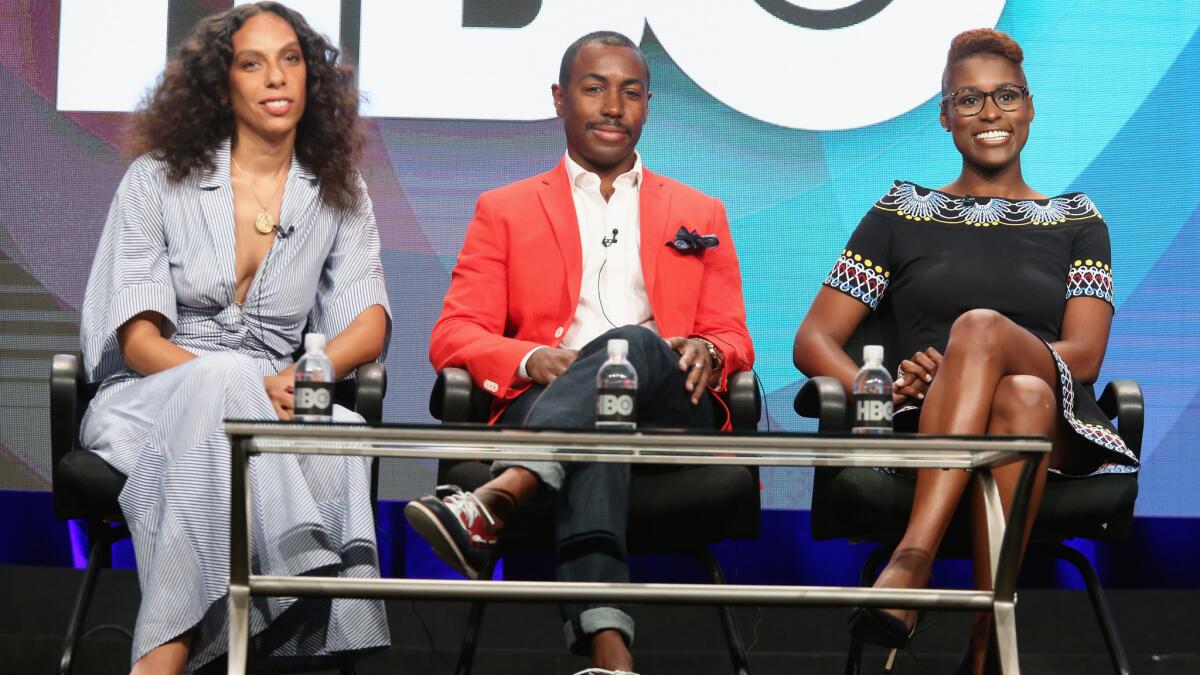
And relatable in ways that maybe mainstream audiences haven’t seen before, which is the aim of “Loosely Exactly Nicole,” a forthcoming MTV comedy chronicling the semi-autobiographical adventures of comedian/actress Nicole Byer, who recalled going on auditions in which she was asked to act “blacker.”
“I’ve had one casting director who was literally like, ‘I need you to be as black as possible.’ And then she was like, ‘If you go too black, I’ll bring you back.’ And I was like, ‘What does that mean?’ Like, ‘If I pull out a knife and like shank you, like is that too far?’ So, yeah, I don’t deal with that too much now. But in the beginning, I was auditioning and whatnot. It was every audition I went on.” (When someone remarked “sad” in the room, Byer replied triumphantly, “Oh, it’s so sad. But look at me now.”)
Another step forward in the discussion comes with “Marvel’s Luke Cage,” the first black superhero to headline his own show in the tapestry of the contemporary Marvel universe (which includes film and television).
“It’s important in the landscape of television, and also I think globally, as far as symbols and people, when they look at black culture, it’s important that we have positive images,” said “Cage” star Mike Colter during the panel for the Netflix series.
“And I try not to think about it because it’s an overwhelming task to think that you have to carry this thing on your shoulders, because we’re just trying to tell a story,” Colter said. “We’re just trying to tell a story about a superhero who’s going through the same kind of changes that other superheroes, who are not black, go through. But because we are in small numbers, and there’s not as many of us, we’re kind of looked at differently. But we’re just trying to tell a unique story. And I think we’ve done so. And anything you can glean from that, then that’s not something that we’re trying to overtly do. We have no agenda.
“But I’m proud that people do think he’s a good superhero. And I hope that the black community can feel good about him as well.”
ALSO
Issa Rae takes HBO from white ‘Girls’ to black women with ‘Insecure’
More to Read
The complete guide to home viewing
Get Screen Gab for everything about the TV shows and streaming movies everyone’s talking about.
You may occasionally receive promotional content from the Los Angeles Times.


